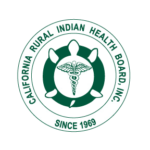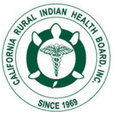
Child Care & Development Fund (CCDF) Program
The Office of Child Care is dedicated to enhancing the quality, affordability, and availability of child care for all families. The Office of Child Care administers federal funds to states, territories, and tribes to assist low-income families in accessing quality child care for children when the parents work or participate in educational or training programs. It is this mission that CCDF is built upon.
The Child Care and Development Fund program, or as it is referred to, CCDF, is distributed on a yearly basis to all federally recognized tribal grantees and Tribal Lead Agencies, such as California Rural Indian Health Board, Inc. This program is federally funded, subjected to federal regulations governing this program. By this virtue, Tribal families are able to receive child care subsidies directly from CRIHB, instead of having to apply for state funding.
CCDF’s main goal is to assist low income families with child care costs in the form of subsidies. CCDF covers costs for children birth to 13 years of age, along with providing technical support for parents and child care providers. Parents are afforded the opportunity to seek the type of child care that is best suited for their child, inclusive of Licensed Child Care; Private-For-Profit Child Care; Preschools; Afterschool Programs; Summer Programs and Relative-Family Child Care.
Child Care Services Funded by CCDF: Subsidized child care services are available to eligible families through certificates or agreements with parents. Child care providers serving children funded by CCDF must meet basic health and safety requirements set by states and tribes. These requirements must address prevention and control of infectious diseases, including immunizations; building and physical premises safety; and minimum health and safety training.
Eligibility Requirements
- Applicant or Child must be a member or lineal descent of one of the CCDF member Tribes listed below
- Applicant must be working and/or attending school;
- Child must be under the age of 13 years old;
- Household Income must be at or below 85% of the State Median Income for the same size household.
- Documents will be requested to verify eligibility of each family applying to the program.
Tribes Funded by the CCDF Program Through CRIHB
- Big Lagoon Rancheria
- Big Valley Rancheria
- Cold Springs Rancheria
- Elk Valley Rancheria
- Federated Indians of Graton
- Fort Bidwell Reservation
- Greenville Rancheria
- Ione Band of Miwok Indians
- Kashia Band of Pomo Indians of Stewarts Point
- Manchester Band of Pomo Indians
- Resighini Rancheria
- Shingle Springs Rancheria
- Tejon Tribe
- Tule River Indian Reservation
- Wilton Rancheria
CCDF Application and Documents
All applicants must complete the application and documents found in this section of the website. Processing of completed applications will take approximately 1 month. If an application is not complete, staff will contact you immediately. Incomplete applications will not be approved. The program does not pay retroactively during the processing of your application. We encourage to send completed applications in order to reduce wait times.
If you have questions on how to complete the application, please contact our staff to set up a telephone appointment or a person-to-person appointment. Application Documents are located on the sidebar to the right.
- CCDF_Application Introduction
- CCDF Application Requirements and Definition-Rules 2013
- CCDF-CertOfRegistration 11-08
- CCDF-DeclarationOfExemption11-08
- CCDF-ExemptTB11-08
- CCDF-HealthSafetySelf-Certification 11-08
- CCDF-ParentsRights11-08
- CCDF Child Care Provider Information Page
- CCDF Switching Child Care Provider Form
- Trustline Registry in-Home Child Care Providers Application
- W-9 Form (Revised 2011)
- CCDF Child School Schedule Verification Form
- CCDF Employment Verification Form
- CCDF Household Income Verification Form
- CCDF Parent School-Training Verification Form
CCDF Federal Requirements
- FY2020-2022 CCDF Tribal Plan PRA-2_2019.05.06
- CCDF-ACF-PI-2019-04_477 Tribes 2020-2022 Plan Req 2019.07.12.docx
- CCDF-ACF-PI-2019-03_2020-2022 Tribal Plan Preprint_2019.07.12.docx
- Attachment A (Preprint) – 2020-2022 Tribal CCDF Plan Preprint FINAL
- Attachment B (477) – Will Not Be Waived
*If you have questions, please contact:
AnnLouise Bonnitto, JD
Tribal Child Development Director
916-929-9761, ext. 1700/abonnitto@crihb.org
WeAreTeachers is an online media brand for educators committed to one of the toughest, most rewarding jobs out there.
Resources
- Child Health Online Website
- Children’s Workbook – what happened in court
- Chicken Pox
- Common Cold
- Pink Eye
- Ear Infection Sheet
- Emotional Development Stages
- Fifth Disease
- German Measles
- Safe Sleep Policy
- Social Emotional Tips for Parents & Providers
- Child Health Online
- CCDF Information Brochure
- Child Care Disaster Planning Video
Child Care Center Complaints
ChildCare.gov is a resource for parents and providers to research licensing requirements, child care settings, and to find public reports on child care centers, complaints, and issues with child care providers.
Contact Us
The Tribal Child Development Staff is here to serve you. Please feel free to contact us at the following email addresses:

